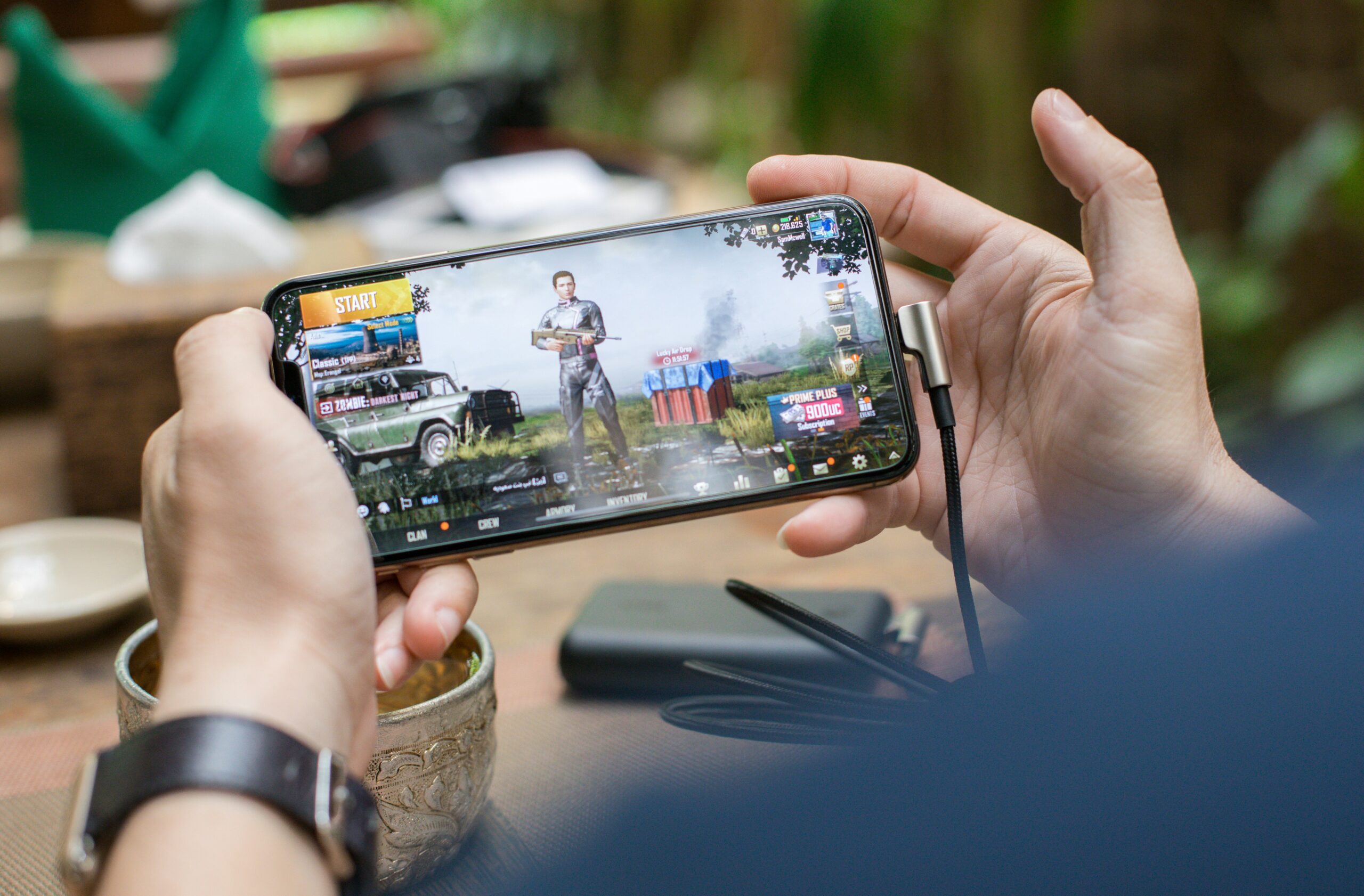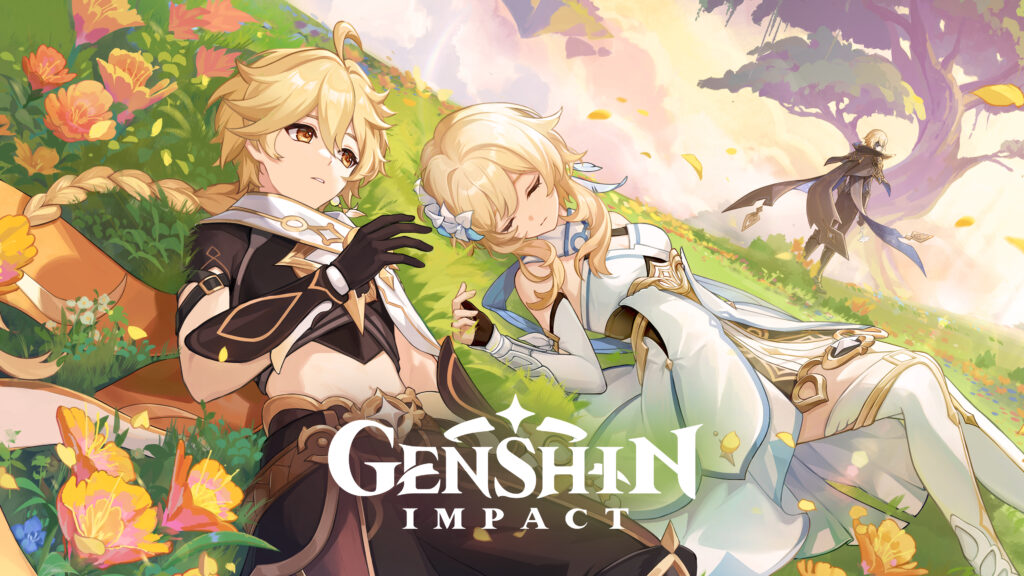
Introduction to Mobile Gaming Mechanics
Mobile gaming has evolved significantly over the past decade, transitioning from simple puzzle games to complex, immersive experiences. At the core of this evolution lies the concept of game mechanics, which encompass the rules, systems, and interactions that govern gameplay. These mechanics serve as the foundation upon which players build their strategies and experiences. In mobile gaming, the intricacy of these mechanics can substantially affect player engagement and retention, making them a crucial area of focus for game developers.
Deep mechanics are particularly important in mobile games, as they enhance the overall player experience by offering layers of strategy and depth. Games with sophisticated mechanics encourage players to invest time and effort into mastering various elements, which can lead to improved skill levels and a more fulfilling gameplay experience. This engagement not only facilitates short-term participation but also promotes long-term loyalty to the game, as players are more likely to return to a title that offers a rich and rewarding experience.
As we delve deeper into the realm of mobile gaming, it becomes essential to analyze specific titles that exemplify these principles. Games like Genshin Impact, Clash Royale, and PUBG Mobile have successfully leveraged deep mechanics to captivate audiences. Each of these games incorporates unique systems and strategies that enhance player enjoyment while also fostering community engagement. By examining these mechanics, we can gain insights into what makes mobile games successful and how they can continue to evolve in the competitive gaming landscape.
Genshin Impact: The World of Open-World Exploration and Gacha Mechanics
Genshin Impact has significantly reshaped the landscape of mobile gaming through its innovative open-world exploration and intricate gacha mechanics. The game allows players to traverse its vast, visually stunning world of Teyvat, where they can discover diverse environments, secrets, and numerous quests. This open-world design encourages an immersive exploration experience that captivates players of all ages. Players engage in various activities, from battling enemies to completing puzzles, which cultivate a rich adventure that is both stimulating and rewarding.

At the core of Genshin Impact’s allure is its gacha system, which provides a unique method for acquiring new characters and weapons. This mechanic introduces an element of chance, as players spend in-game currency or real money to obtain different characters. Each character possesses distinct abilities and elemental affiliations, adding depth to team-building strategies. The randomness associated with the gacha mechanics creates a tapestry of anticipation and excitement, driving players to keep returning to enhance their roster. The thrill of unlocking a new character often leads to discussions among the community, as users share their experiences and strategies, amplifying engagement.
However, the inclusion of luck and risk in Genshin Impact’s gacha system can lead to a complex emotional landscape for players. While some may revel in the excitement of a rare character acquisition, others may feel disenfranchised by the inability to obtain desired items or characters. This dynamic may prompt players to balance their spending and gameplay strategies, weighing the potential rewards against the risks involved. Over time, this interplay affects how players perceive their investment in the game, both financially and emotionally, creating a cycle of continuous engagement that is characteristic of Genshin Impact.
Clash Royale: The Strategy Game that Combines Luck and Skill
Clash Royale stands out in the mobile gaming landscape as a real-time strategy game that intricately weaves together elements of skill and chance. The gameplay revolves around players using digital cards to summon troops, spells, and defenses to outmaneuver their opponents. Each player’s deck, consisting of a carefully curated collection of cards, plays a critical role in their overall strategy. This aspect adds depth to the game, as players must not only master their chosen cards’ individual abilities but also devise tactics based on their opponents’ decks and play styles.

The strategic depth of Clash Royale is evident in how players must adapt their strategies on-the-fly, taking into account the luck of the draw when it comes to card selection during battles. Each match begins with a randomized hand of four cards drawn from a player’s deck, which introduces an element of unpredictability. The key to success lies in balancing the ability to leverage advantageous card draws while mitigating the impact of a poor hand. Players who successfully anticipate their opponent’s moves and counter them effectively tend to come out on top.
Winning strategies often involve a combination of defensive and offensive maneuvers, requiring players to maintain a keen understanding of elixir management—the unique resource that powers card plays. Players must not only focus on their cards but also be aware of their opponent’s elixir usage, leading to opportunities to capitalize on overcommitted plays. This aspect enhances the thrill of each match, as players constantly evaluate their strategies against ever-changing board states and the inherent uncertainty of card draws.

Ultimately, Clash Royale’s deep mechanics invite players to navigate a complex interplay of luck and skill, making every match a unique and exhilarating experience. The results hinge not only on a player’s strategic acumen but also on their ability to adapt and think critically in the heat of battle.
PUBG Mobile: The Thrill of Battle Royale Mechanics
PUBG Mobile, an iconic player versus player shooter, has revolutionized mobile gaming with its immersive battle royale mechanics. Central to this experience is the survival strategy that players must adopt. Each match begins with a tactical deployment where players must choose their landing zones wisely. Selecting locations with optimal loot while managing the associated risks is paramount. This initial decision sets the tone for the entire gameplay, as it can lead to immediate engagement or an opportunity to gather vital resources quietly.

Positioning plays a crucial role in PUBG Mobile’s dynamics. Players must navigate the map while considering their relative placement to other players and the ever-shrinking play zone. Effective positioning not only aids in avoiding unwanted confrontations but also allows for better ambush opportunities. Players will find themselves weighing the benefits of taking high ground versus the security of staying hidden, as both strategies can lead to advantageous outcomes in combat. The map’s varied terrain further enhances this mechanic, introducing hills, buildings, and vehicles that can serve as cover or escape routes, depending on the player’s situation.
Resource management is another fundamental aspect of gameplay in PUBG Mobile. From weapon selection to ammunition conservation, players must constantly evaluate their inventory. As engagements unfold, the risk-reward dynamic becomes apparent, particularly during loot acquisition. Aggressively ambushing opponents can grant access to superior resources, but it also exposes players to counterattacks. This balancing act promotes a thrilling mindset, where calculated risks can yield substantial rewards. Furthermore, teamwork is essential in ensuring victory. Coordinating with teammates to share supplies, revive downed allies, and execute strategic plays enhances the chances of survival, solidifying PUBG Mobile as a quintessential example of battle royale mechanics that captivate gamers worldwide.
Comparative Analysis of Game Mechanics
The mechanics of mobile games play a vital role in their popularity and player engagement. By examining the unique approaches taken by Genshin Impact, Clash Royale, and PUBG Mobile, we can gain insight into how these games successfully attract and retain their audiences.
Genshin Impact employs a gacha system and an open-world environment that encourages exploration and character collection. The game’s mechanics revolve around elemental interactions and real-time combat, allowing players to strategically employ various character abilities to overcome challenges. This system adds a layer of strategy, where the choice of characters and their element types can significantly influence gameplay. Additionally, Genshin Impact incorporates a nurturing aspect, enabling players to upgrade their characters through resource gathering, which enhances the overall investment in the game and fosters a dedicated community.
In contrast, Clash Royale offers a more fast-paced and competitive experience through real-time strategy mechanics. Players compete against opponents in quick matches, actively utilizing a deck of cards that represent different units and spells. The element of luck comes into play as players must adapt their strategies based on the cards drawn during the match. Clash Royale’s mechanics encourage risk-taking; players can choose to play aggressively or defensively, ultimately impacting their chances of victory. The game also introduces seasonal updates, keeping the gameplay dynamic and ensuring that players remain engaged over time.
Meanwhile, PUBG Mobile emphasizes survival mechanics in a battle royale format, where players are dropped onto a vast map to scavenge for weapons and gear. Luck plays a crucial role in initial loot, impacting players’ strategic decisions and survival chances. The mechanics of development focus on teamwork and communication, further adding to the depth of gameplay as players must coordinate with their squad to succeed. The risk-reward element in PUBG Mobile creates thrilling moments, especially during the final circles where players must make split-second decisions that could lead to victory or defeat.
Through these comparative analyses, it becomes evident that each game’s mechanics contribute uniquely to their overall appeal. By integrating strategy, luck, and risk, Genshin Impact, Clash Royale, and PUBG Mobile have carved out their niches, each offering distinct yet engaging experiences that resonate with diverse player bases.
The Role of Rewards and Payouts in Player Motivation
In the realm of mobile gaming, the role of rewards and payouts stands as a critical anchor in fostering player motivation and enhancing overall engagement. Games such as Genshin Impact, Clash Royale, and PUBG Mobile each incorporate unique reward systems that contribute significantly to player retention and satisfaction. These mechanisms not only drive immediate engagement but also cultivate long-term commitment among users.
Taking Genshin Impact as a prime example, the character acquisition system is central to its appeal. Players are motivated to continue playing as they strive to collect diverse characters, each with distinct abilities and story arcs. This collection aspect, combined with the thrill of “gacha” mechanics—which create a randomized reward experience—fuels the excitement and anticipation inherent in gameplay. Moreover, the chance to obtain rare characters offers a compelling incentive, encouraging players to invest time and resources into the game.
In contrast, Clash Royale emphasizes a competitive edge with its trophy systems. Players earn trophies by defeating opponents, climbing the ranks, and thereby unlocking various rewards, such as chests that contain cards and resources. This structured system promotes a sense of achievement and encourages players to engage in strategic gameplay. The constant pursuit of higher trophies creates a dynamic environment where players are motivated to refine their skills, enhancing the gameplay experience.
Similarly, PUBG Mobile incentivizes players through loot and rewards found within the game’s dynamic environments. The element of acquiring weapons, gear, and cosmetic items significantly motivates players to continue exploring and engaging with the game world. This loot-based system not only enriches the gaming experience but also encourages players to participate in battles with the hope of obtaining better rewards.
In conclusion, these diverse reward systems exemplify how thoughtfully designed mechanics can profoundly influence player motivation and satisfaction in mobile gaming. The interplay of character acquisition in Genshin Impact, trophy systems in Clash Royale, and loot incentives in PUBG Mobile illustrates the essential role that rewards play in shaping player behavior and enhancing their gaming experience.
Understanding Player Strategy and Decision-Making
In the realm of mobile gaming, strategic decision-making plays an essential role in determining player success. Titles like Genshin Impact, Clash Royale, and PUBG Mobile each exhibit unique mechanics that influence how players assess risks, anticipate outcomes, and devise strategies. Understanding these deep mechanics is crucial for players aiming to enhance their gameplay and achieve their objectives.
In Genshin Impact, players must consider character abilities, elemental interactions, and team compositions while strategizing their approach to exploration and combat. The game’s mechanics encourage players to analyze which character combinations yield the most effective elemental reactions. This understanding not only aids in immediate decision-making during battles but also shapes long-term strategies for character progression and resource management.
Conversely, Clash Royale’s mechanics revolve around quick, reactive strategies. Players must make split-second decisions about which cards to deploy and when to initiate attacks. Understanding the cost of elixir and anticipating the opponent’s moves are critical skills. Players who excel in this game often develop a keen sense of timing and risk assessment. They can read their opponent’s strategies and adjust their own, capitalizing on openings to secure victory.
In PUBG Mobile, the strategic layer focuses on resource management, terrain navigation, and positioning. Players must assess the risks of engaging in combat while also considering their immediate environment. Decisions such as when to loot, relocate, or engage enemies hinge on a complex interplay of game mechanics, including the shrinking play zone and player density. Successful players utilize these mechanics to their advantage, forecasting opponent behavior and making informed choices that increase their chances of survival and victory.
In conclusion, understanding player strategy and decision-making across these mobile games reveals not only the intricacies of each title’s mechanics but also highlights the cognitive skills that successful players develop. These skills are vital in navigating the competitive landscape of mobile gaming.
Luck vs. Skill: Finding the Balance in Gameplay
The dynamic interplay between luck and skill is central to the gameplay experience in mobile games, exemplified by titles such as Genshin Impact, Clash Royale, and PUBG Mobile. Each of these games incorporates elements of chance, while simultaneously requiring strategic skill from the players. This balance not only heightens engagement but also caters to a diverse array of player preferences, leading to varied gameplay experiences.
In Genshin Impact, luck can play a significant role, particularly when it comes to acquiring characters and weapons through its gacha system. Players often invest time and resources hoping for favorable outcomes in terms of rare item acquisition. However, while chance influences these moments, player skill is crucial in navigating the expansive world, completing quests, and efficiently battling enemies. Skillful players can optimize their teams, utilize elemental combinations, and refine their combat techniques, mitigating the reliance on luck for success.
Clash Royale offers another perspective on luck versus skill. The random draw of cards at the beginning of each match introduces an element of chance, but effective players recognize that strategic deck building and real-time decision-making can counteract any unfortunate card draws. Players must anticipate and adapt to opponents’ strategies while maneuvering through unpredictable gameplay scenarios. This blend of luck in card selection and skill in deploying strategies creates a thrilling environment that challenges players’ tactical abilities.
Finally, in the battle royale landscape of PUBG Mobile, luck can shape the initial stages of gameplay through randomized loot distribution and location drops. Gamers must rely on their skills in navigation, combat, and teamwork to maximize their chances of survival, thereby demonstrating that while some elements stem from luck, individual capabilities tend to determine overall performance in matches. Therefore, the balance of luck and skill epitomizes the excitement inherent in the genre, as players navigate uncertainties while leveraging their strategic prowess.
Conclusion
In the landscape of mobile gaming, deep mechanics serve as a pivotal element that shapes player experience and engagement. The exploration of Genshin Impact, Clash Royale, and PUBG Mobile demonstrates that these intricate systems are not merely enhancements, but foundational aspects that drive the success of modern mobile titles. Genshin Impact exemplifies this with its rich narrative and expansive open world, engaging players through a comprehensive system of character progression and elemental interactions. These features allow for strategic gameplay that deepens player investment and enjoyment.
Similarly, Clash Royale showcases the importance of tactical gameplay that encourages robust competition through its card-based mechanics. The game’s emphasis on strategy and real-time decision-making illustrates how deep mechanics can foster a vibrant community and long-term player retention. The leagues and tournaments that arise from such competitive structures further affirm the impact these elements can have on player engagement.
Furthermore, PUBG Mobile highlights how immersive experiences can be enhanced through environmental mechanics and player interactions, maintaining a balance between accessibility and depth. The ongoing evolution of these deep mechanics is integral to the future of mobile gaming. As technology advances, the expectations surrounding gameplay complexity and engagement will also rise. Developers must continue to innovate and refine their games, ensuring they cater to a diverse audience seeking not only entertainment but also a meaningful and enriching experience.
Overall, the case studies of Genshin Impact, Clash Royale, and PUBG Mobile illustrate that deep mechanics are crucial in creating engaging gameplay. Understanding these mechanics enables both players to appreciate the artistry of game design and developers to craft experiences that resonate with their audience. This continuous evolution suggests that the future of mobile gaming will be marked by a commitment to depth and engagement, offering exciting possibilities for both creators and consumers alike.

